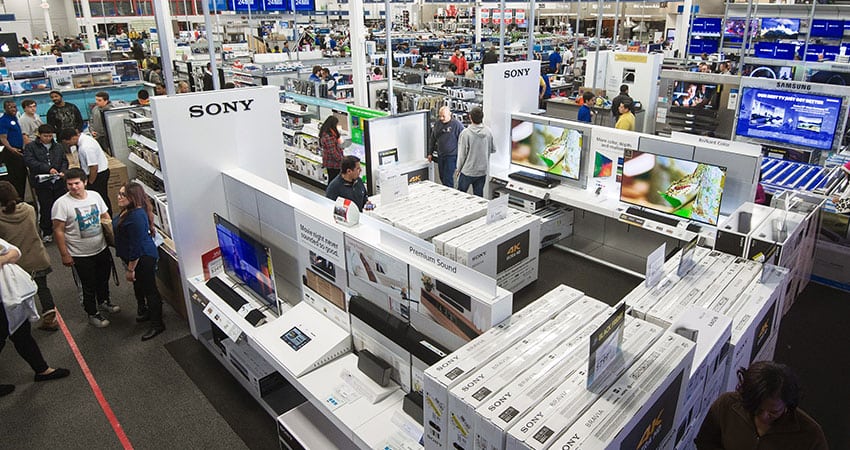Best Buy reported Q1 earnings that beat expectations while revenue fell a bit short, warning of continued weakness in spending on larger-ticket electronics but expecting demand to pick up this year as consumers who bought gadgets in droves at the start of the pandemic begin to upgrade.
Best Buy reported adjusted earnings per share of $1.15, above the Refinitiv consensus figure of $1.11, while revenue was $9.47 billion, lower than the $9.52 billion expected and off 11% from $10.6 billion in 2022.
“In this environment, customers are clearly feeling cautious and making tradeoff decisions as they continue to deal with high inflation and low consumer confidence due to a number of factors,” Best Buy CEO Corrie Barry told analysts on the earnings call. “At the same time, in Q1, we saw our purchasing customer behavior remain relatively consistent in terms of demographics, and the percent of purchases categorized as premium.”
The pandemic-fueled buying of electronics to create home office and school environments roughly doubled the number of connected devices in U.S. homes, Barry said, creating a healthy base for the inevitable replacement cycle in 2024 and 2025.
Barry said there was “slightly more” promotions and discounting in Q1 than last year, rising above 2020 levels, adding the promotional environment has now returned to what it was pre-pandemic. “We effectively managed through those situations in partnership with our vendors,” she said. “On a blended basis, our overall average selling price was slightly down to last year due to the return of promotionality.”
As did Walmart and Target last week, Best Buy has been actively reducing its overstock levels. Barry said inventory was down 17% in Q1 relative to a year ago, when bloat was an industry-wide problem after supply chain shocks led to panic buying. The company maintains 60 days of forward supply, she said.
Ecommerce represented 31% of Best Buy’s domestic revenue in Q1, on par with the past two years and double what it was before the pandemic, while BOPIS made up just over 40% of sales.
“Considering the speed of our delivery, with almost 60% of packages delivered within two days, we believe the consistency of our high in-store pickup by our customers really underscores the importance and convenience of our stores,” Barry said.
The CEO also addressed Best Buy’s creation of a tiered loyalty strategy, going into effect June 27 in an attempt to boost revenue and stickiness during a challenging environment. My Best Buy will remain a free points-based program that added free shipping this year. For $49.99 a year, My Best Buy Plus includes exclusive pricing, early access to hot releases, free two-day shipping and an extended 60-day return/exchange window on most products. My Best Buy Total, at $179.99 a year, throws in 24/7 Geek Squad support on all electronics and up to two years of protection on most purchases.
Compared to the $199 a year Totaltech program which is being eliminated, My Best Buy Total takes away free in-home installation and haul-away services but adds promotional offers.
“As we reflected on the goals of our membership programs, we made this change because we could see that many customers who became members primarily for free installation services did not stay with the program as long as other members, and had significantly higher churn,” Barry said.
In fiscal 2024, Best Buy will continue to refine its fleet, closing 20 to 30 large-format stores, doing eight Experience Store remodels and opening 10 outlet locations, Barry said.

